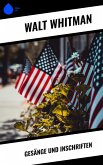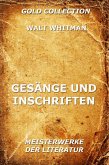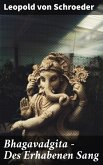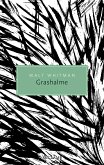Walt Whitman's 'Gesänge und Inschriften' is a seminal collection of poems that revolutionized American literature. Written in free verse, Whitman's work celebrates the beauty of nature, the diversity of human experience, and the unity of all beings. Through vivid imagery and unconventional structure, Whitman creates a sense of intimacy with the reader, inviting them to explore the depths of their own soul. This collection defies traditional poetic conventions, embracing a sense of democracy and individualism that was groundbreaking for its time. Walt Whitman, known as the 'Bard of Democracy,' was a visionary poet whose work challenged the norms of his era. Born in 1819, Whitman's experiences as a journalist and nurse during the Civil War deeply influenced his writing. 'Gesänge und Inschriften' reflects Whitman's belief in the interconnectedness of all living things and his celebration of the human spirit. His bold and unapologetic style paved the way for future poets to explore themes of identity, freedom, and equality. For readers seeking a transformative literary experience, 'Gesänge und Inschriften' is a must-read. Whitman's powerful verses resonate with universal truths, inspiring readers to embrace their own individuality and connection to the world around them. This collection continues to captivate audiences with its timeless exploration of the human experience and its enduring relevance in today's society.
Dieser Download kann aus rechtlichen Gründen nur mit Rechnungsadresse in A, B, BG, CY, CZ, D, DK, EW, E, FIN, F, GR, H, IRL, I, LT, L, LR, M, NL, PL, P, R, S, SLO, SK ausgeliefert werden.









